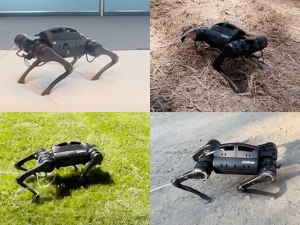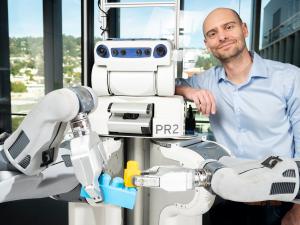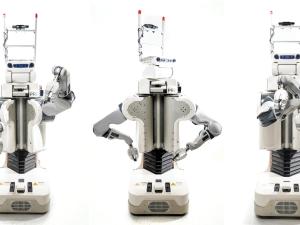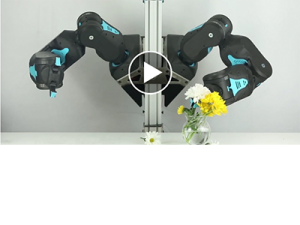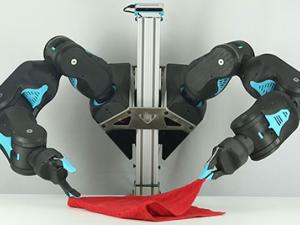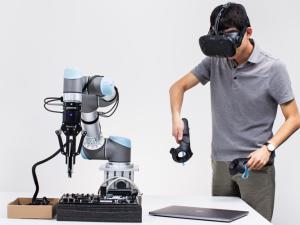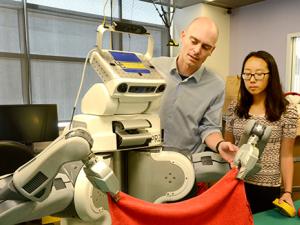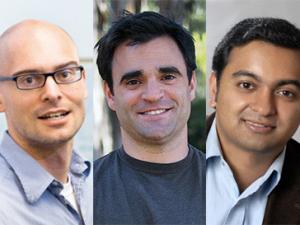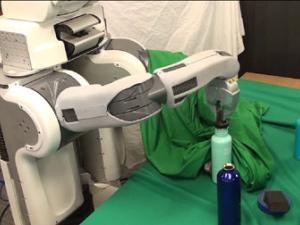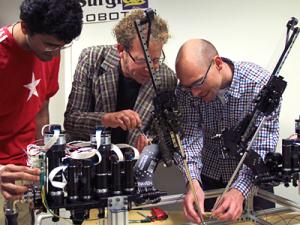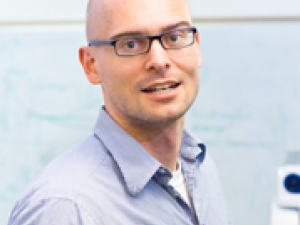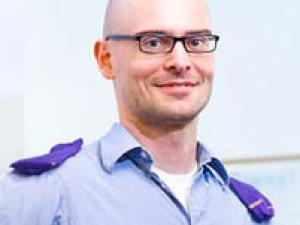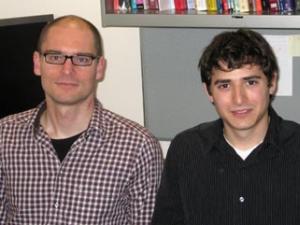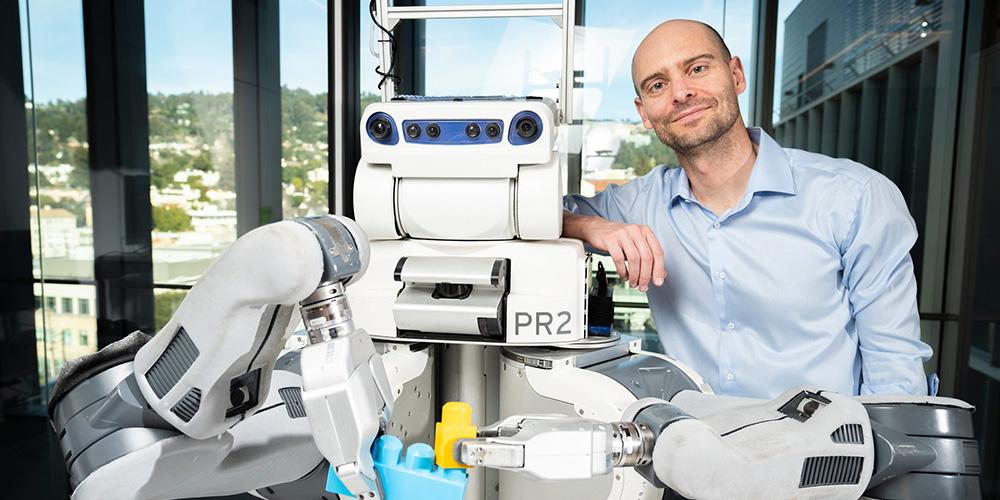

Research Expertise and Interest
robotics, machine learning, artificial intelligence, Deep Learning
Research Description
Pieter Abbeel is Professor and Director of the Robot Learning Lab at UC Berkeley [2008- ], Co-Founder of covariant.ai [2017- ], Co-Founder of Gradescope [2014- ], Advisor to OpenAI, Founding Faculty Partner AI@TheHouse, Advisor to many AI/Robotics start-ups. He works in machine learning and robotics. In particular his research focuses on making robots learn from people (apprenticeship learning), how to make robots learn through their own trial and error (reinforcement learning), and how to speed up skill acquisition through learning-to-learn (meta-learning). His robots have learned advanced helicopter aerobatics, knot-tying, basic assembly, organizing laundry, locomotion, and vision-based robotic manipulation. He has won numerous awards, including best paper awards at ICML, NIPS and ICRA, early career awards from NSF, Darpa, ONR, AFOSR, Sloan, TR35, IEEE, and the Presidential Early Career Award for Scientists and Engineers (PECASE). Pieter's work is frequently featured in the popular press, including New York Times, BBC, Bloomberg, Wall Street Journal, Wired, Forbes, Tech Review, NPR.
In the News
UC Berkeley Joins NSF-Backed AI Institute for Cybersecurity
Step by Step Berkeley Robots Learn to Walk on Their Own in Record Time
Berkeley Robot Learning Pioneer Pieter Abbeel Wins ACM Prize in Computing
Learning to learn
AI-powered Berkeley robot among Popular Science’s ‘Best of What’s New'
Meet Blue, the low-cost, human-friendly robot designed for AI
Berkeley startup to train robots like puppets
“Deep Learning”: A Giant Step for Robots
Bakar Fellow Pieter Abbeel studies deep learning in robots. The robot BRETT (Berkeley Robot for Elimination of Tedious Tasks) has mastered a range of skills, including folding laundry, knot-tying, and basic assembly.
Three young faculty members honored by White House
Three UC Berkeley faculty members named as recipients of the Presidential Early Career Awards for Scientists and Engineers, the highest honor bestowed by the U.S. government on science and engineering professionals in the early stages of their independent research careers.
New ‘deep learning’ technique enables robot mastery of skills via trial and error
UC Berkeley researchers have developed algorithms that enable robots to learn motor tasks through trial and error using a process that more closely approximates the way humans learn, marking a major milestone in the field of artificial intelligence.
Big NSF grant funds research into training robots to work with humans
What if robots and humans, working together, were able to perform tasks in surgery and manufacturing that neither can do alone? That’s the question driving new research by UC Berkeley robotics experts Ken Goldberg and Pieter Abbeel and colleagues from four other universities, who were awarded a $3.5 million grant from the National Science Foundation.
UC Berkeley robotics expert named among world’s top young innovators
Pieter Abbeel, a UC Berkeley, professor known for his novel work in the field of machine learning in robotics – including robots that can fold laundry – has been named to a prestigious list of 35 of the world’s top young innovators by Technology Review magazine.
Laundry duty getting you down? Robots to the rescue!
Folding laundry may seem mundane, but for a robot, identifying a 3-D object and manipulating it correctly, it’s an exercise that requires intelligence that humans may take for granted. Pieter Abbeel and his team of engineers are developing increasingly efficient strategies and algorithms to help robots fold towels, forming the foundation for the next generation.
Four young faculty members to receive $50,000 Sloan Research Fellowships
Four UC Berkeley faculty members have been awarded prestigious Sloan Research Fellowships, given annually by the Alfred P. Sloan Foundation to scientists, mathematicians and economists at an early stage of their careers.
Researchers enable a robot to fold towels
A team from Berkeley's Electrical Engineering and Computer Sciences department has figured out how to get a robot to fold previously unseen towels of different sizes. Their approach solves a key problem in robotics -- how to deal with flexible, or "deformable," objects.
Featured in the Media
Blue, a new low-cost robot that learns by trial and error and has been designed to safely interact with humans, has been introduced by a team of roboticists at Berkeley. Now in commercial development by a spinoff startup called Berkeley Open Arms, it is expected to cost an astonishingly low $5,000. Led by electrical engineering and computer sciences professor Pieter Abbeel, co-developers include postdoctoral research fellow Stephen McKinley, and graduate student David Gealy. Eventually, the team expects that Blue robots will help people with all kinds of repetitive but light tasks that require manipulative dexterity, such as folding laundry, washing dishes, and picking up messes. Explaining why the team deliberately tried to develop a robot that is "weak," Gealy says: "Essentially, we can get more out of a weaker robot. And a weaker robot is just safer. The strongest robot is most dangerous. We wanted to design the weakest robot that could still do really useful stuff." Link to video. For more on this, see our press release at Berkeley News. Stories on this topic appeared in dozens of sources, including Science & Enterprise, Millennium Post, Odborne Casopisy (Czech Republic), FARS News Agency (Iran), and Outlook India.

